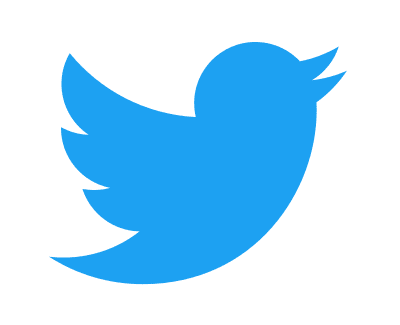The President’s speech got me thinking. My kids are no smarter than similar kids their age from the inner city. My kids have it much easier than their counterparts from West Philadelphia. The world is not fair to those kids mainly because they had the misfortune of being born two miles away into a more difficult part of the world and with a skin color that makes realizing the opportunities that the President spoke about that much harder. This is a fact. In 2011.Again, you probably need to read the whole thing before you comment, but I think you get the basic premise. If black kids just tried a bit harder, and were a bit more resourceful in utilizing technology, they could all be mediocre writers for a mostly irrelevant magazine's website. This, obviously, is pure sh*t.
I am not a poor black kid. I am a middle aged white guy who comes from a middle class white background. So life was easier for me. But that doesn’t mean that the prospects are impossible for those kids from the inner city. It doesn’t mean that there are no opportunities for them. Or that the 1% control the world and the rest of us have to fight over the scraps left behind. I don’t believe that. I believe that everyone in this country has a chance to succeed. Still. In 2011. Even a poor black kid in West Philadelphia.
It takes brains. It takes hard work. It takes a little luck. And a little help from others. It takes the ability and the know-how to use the resources that are available. Like technology. As a person who sells and has worked with technology all my life I also know this.
If I was a poor black kid I would first and most importantly work to make sure I got the best grades possible. I would make it my #1 priority to be able to read sufficiently. I wouldn’t care if I was a student at the worst public middle school in the worst inner city. Even the worst have their best. And the very best students, even at the worst schools, have more opportunities. Getting good grades is the key to having more options. With good grades you can choose different, better paths. If you do poorly in school, particularly in a lousy school, you’re severely limiting the limited opportunities you have.
President Obama was right in his speech last week. The division between rich and poor is a national problem. But the biggest challenge we face isn’t inequality. It’s ignorance. So many kids from West Philadelphia don’t even know these opportunities exist for them. Many come from single-parent families whose mom or dad (or in many cases their grand mom) is working two jobs to survive and are just (understandably) too plain tired to do anything else in the few short hours they’re home. Many have teachers who are overburdened and too stressed to find the time to help every kid that needs it. Many of these kids don’t have the brains to figure this out themselves – like my kids. Except that my kids are just lucky enough to have parents and a well-funded school system around to push them in the right direction.
Technology can help these kids. But only if the kids want to be helped. Yes, there is much inequality. But the opportunity is still there in this country for those that are smart enough to go for it.
Look, I've never been a poor black kid either. Black, sure? Poor? Not so much. My parents busted their humps in college and worked hard to become the first ever graduates from their prospective families, excelled in their careers, and stressed education to my and my brothers. I grew up in a relatively crime-free suburb of a mid-sized city in the South, and went to okay (not great, but certainly not terrible) schools. I've never wondered where my next meal was coming from, whether or not we'd have a place to sleep at night, or had to dodge bullets on the way to the corner store. So in the most crude of senses, I'm just as clueless about some aspects of what is means to be a "poor black kid" as Mr. Marks. At least I can admit as much.
The problem with Marks' advice is obvious: if escaping poverty was as simple as downloading a few apps, there wouldn't be any poor people left. If you're worried about keeping a roof over your head, getting WiFi is probably the least of your concerns. If your school seldom has heat and working bathroom, let alone capable instructors, getting grades good enough to skate off to a posh private school isn't happening. School choice is great if you happen to win the choice lottery, but well, it's a lottery, which means far more families lose than win. Let's not even get started on bigger structural, societal, and familial issues that can drag down even the most optimistic self-starter.
The sad thing is, the article's best suggestion gets lost in the "I know what's best for you, even if I don't know anything about you" premise of the whole post. Black kids should indeed learn how to write code, design websites, and develop apps. This is where jobs are going to be in the future, not in manufacturing, and certainly not in anything even remotely government related. Of course, most urban schools don't have the resources to support these sorts of programs. A better use of Mr. Marks' lofty pedestal might have been to challenge companies and those in tech fields to invest time and money into developing and supporting such programs. You know, mentoring, aka: taking The AverageBro™ Challenge. As is, Marks' simply puts the challenge on the kids themselves to be resourceful. Again, if it were that simple...
Perhaps this whole article is easier to explain away with some context. Forbes "contributors" like Marks get paid by the page-click. Marks has a history of writing such bait, including a notable recent hit piece about Steve Jobs' death. This guy's goal is a agitate, all the name of the almightly dollar. So, essentially, anyone who bothered to argue with this brick wall has only made him richer in the process. Shame on me. Shame.
Nice try Mr. Marks, and nice try Forbes. Do better.
Question: If you were a poor black kid, how could/would you singlehandedly lift yourself from a life of despair and shiftlessness?!?
[1] I'm just making an assumption here. The tone of the piece (to me) seemed to have good intentions, as opposed to the typical conservative "pull yourself up by your bootstaps" blather. I could, again, be very wrong.





